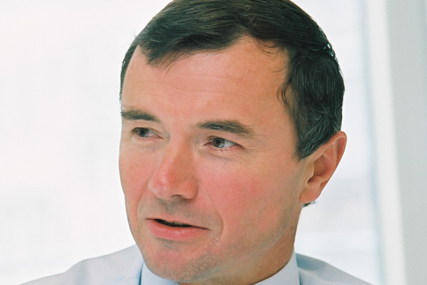
Talking at an IAA business lunch just hours before the US authorities pronounced BP’s blown-out Macondo well "effectively dead", the global marketer drew upon Interbrand’s annual league table, published last week, to highlight the "many other challenges" that lay ahead.
He said: "The BP brand has been tarnished. In 2009, BP was ranked 83rd in the global ranking. The 2010 results show BP falling out of the top 100 for the first time."
He went on to explain how "all components of the brand" would be considered, and admitted: "I never thought I would see the brand move so deeply."
The former chief executive of Castrol Europe sidelined the importance of brand management in such a major crisis, and said from day one (20 April), the message emanating from the top of the organisation was solely about "what is the best thing to do?"
"Actions are going to be much stronger than words," he said. "The reality is that nothing about what you can say in these times can compete with the subsea camera images, which showed, 24/7 on all screens, oil gushing into the Gulf."
Recognising a clear "loss of trust and loss of relationship" with BP, Bardin admitted to not having all the answers, but said the focus now was not on getting back into the top flight of rankings such as Interbrand’s, but on staying true to what the brand was, and hoping the rest would follow.
He said: "BP is a wonderful brand that will prove itself over time. A tragic accident happened and we have taken responsibility.
"The brand belongs to the people, and a brand like BP belongs to all those who are associated with it in any way. We are going to continue to try and get it right."
Acknowledging the strain the crisis had placed upon the senior decision-makers within BP, and following the very public criticism and eventual exit of its chief executive Tony Hayward, Bardin said: "In crisis, the pressure on a few people to act, consider, decide, is absolutely extraordinary."
At the peak of the response, BP had 60,000 people working on the response in the Gulf of Mexico, and Bardin said his response had not been driven by being a marketer, but a person.
He added: "I think this organisation is distinctive in the way that people live what they are. The incident is absolutely shocking. It has been a blow to many people, including me."
During the crisis, BP withdrew most of its international ad campaigns and focused on advertising in the region concerned, primarily using print as an information vehicle.
However, in the three months after the oil spill in, as the energy giant looked to combat rising public anger in the US, predominantly through information-based print campaigns.
Bardin said the company would continue to advertise in the region for "as long as there is value" in it, but added that brand advertising would be reinstated in Europe, as and when appropriate.



.jpg)


.jpg)